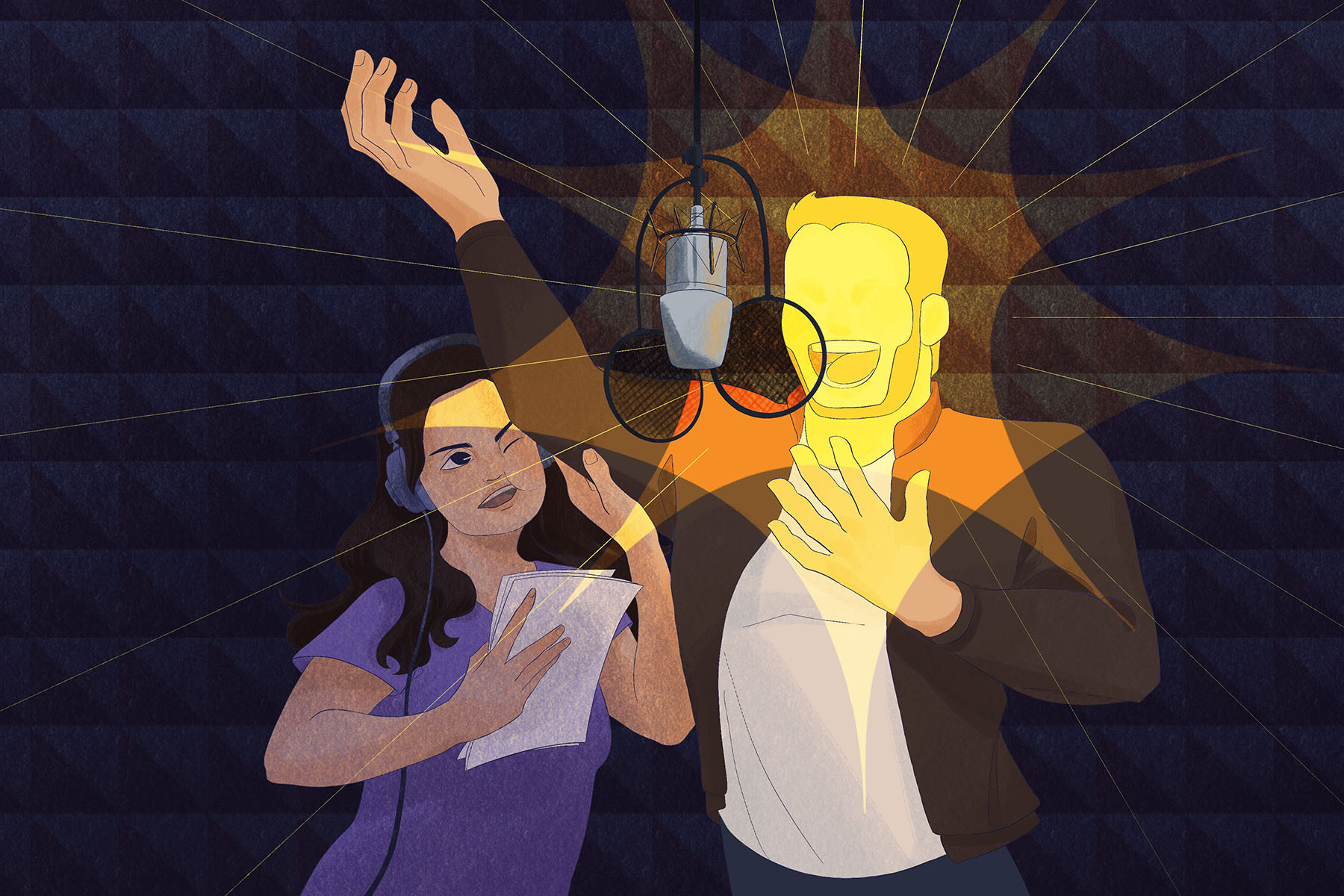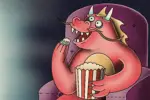In October, Nintendo presented a teaser trailer for “The Super Mario Bros. Movie,” set for theatrical release next April. Revealing a vivid, colorful world full of energetic and dynamic characters — the surprisingly dramatic penguin army being a big highlight — the Mario movie promises to be a big hit. However, the excitement is marred by criticism, as the trailer also debuts Chris Pratt’s signature Chris Pratt accent in his performance as the titular character. Famous names are often attached to animated features to garner interest, and although the trailer only offers a sneak peek of Pratt’s performance, many fans are concerned this might be one time too many.
The film has a star-studded cast even beyond Pratt, featuring the likes of Charlie Day as Luigi, Anya Taylor-Joy as Princess Peach and Seth Rogen as Donkey Kong. It even has Charles Martinet — the actor behind the voices of Mario and Luigi in the original video game franchise — voicing various cameo roles. However, the apparent star of the show is Jack Black as Bowser. From what little the teaser trailer shows, Black is in his element. He is the kind of actor who is too limited by the confines of reality, and whose persona can only fully be expressed through the power of animation. He sounds just like a the fire-breathing King Koopa should, and seems to imbue the character with his vibrant personality. On the other hand, there is Chris Pratt, who seems to be trying his best.
Even John Leguizamo, who starred in the same role in the poorly received 1993 live-action adaptation, “Super Mario Bros” took issue with the casting. Leguizamo’s main gripe, in a now-deleted tweet, is the limited diversity in the cast. However, the primary complaint floating around the internet centers around Pratt’s vaguely Brooklyn take on Mario. In an Instagram post from September of last year, Pratt told fans that his version would be a departure from the typical character, but that he had been working hard on the voice. The result was barely distinguishable from his normal speaking voice; as a result, Pratt is being criticized for low effort and lack of talent in voice acting. To be fair, he did a good job in “The Lego Movie,” but this situation begs the question: If not Pratt, then who?
In the absence of Pratt or any other Hollywood actor the role would presumably go to a professional voice actor. This would be a lot cheaper than hiring Pratt, as there is a demonstrable pay differential between live-action actors and voice actors. The discourse surrounding this pay discrepancy has circulated the internet for years, but was brought to the spotlight recently with an announcement from Hellena Taylor, the main VA for the first two Bayonetta games. She stated that she would not be returning for the franchise’s third outing, citing an intolerably low paycheck as the reason for her departure. Although the story is fraught with conflicting accounts of what happened, it really doesn’t matter who is right; there is still a concrete disregard for the hard work it takes to be a good VA.
But what makes for a good voice actor, as opposed to a skilled live-action actor? The distinction lies in their different skill sets. A good portion of communication is non-verbal, a factor that is far more at work in live-action settings. A seasoned actor might bring a performance to life with the slightest twitch of their hands or minor change in expression. Voice acting is more removed from the action of the story, the actor must utilize their full range of vocal expression without the aid of non-verbal cues. While some big screen actors have equally impressive careers in voice acting, such as Jack Black in “Kung Fu Panda” and Mark Hamill as the iconic animated voice of the Joker, these examples tend to be more exception than rule.
When a big-name actor is brought in to hype up a new animated project, the audience is often actively and painfully aware that they are listening to that actor, limiting their ability to fully immerse themselves in the story. Of course, there is some obvious value in name recognition for a film. In the case of animated films targeted towards younger audiences, the sight of a familiar name might bring parents into the theater. For news and media outlets, a star-studded cast catches the eye and draws in more readership and views.
However, it is unclear whether name recognition carries the same weight it once did, and whether it outweighs the benefits of having an experienced VA working on the project instead. Creators should remember that name recognition doesn’t necessarily mean popularity or brand value; having Jack Black in your cast will yield more positive reactions than Chris Pratt, despite their equally impressive reputations in the industry. What’s more, building up an actor’s brand is easier than ever with the prevalence of social media. If everyone can be famous, how effective is adding one more household name to your cast? It’s a matter of diminishing returns at that point. And funnily enough, despite how easy it is to acquire a bit of fame, there is no guarantee you will become well-known. Due to the multitude of mediums across dozens of platforms, it’s be easy to become entrenched in niches of fame without ever achieving universal notoriety.
Now, the ultimate question: Why does the Mario movie need name recognition? It’s Mario. The character is universally recognized, and the games are equally as popular. “The Super Mario Bros. Movie” could very well become the most widely accessible and successful video game films of all time, strictly because of the power of its own brand. To fully take advantage of everything the movie has going for it, the creators shouldn’t limit themselves by casting inexperienced actors when they could instead create a fuller and more immersive world by hiring professionals. Going for the far cheaper, but almost always higher-quality option. Chris Martinet is already on the cast; maybe let him have a go at it.

















